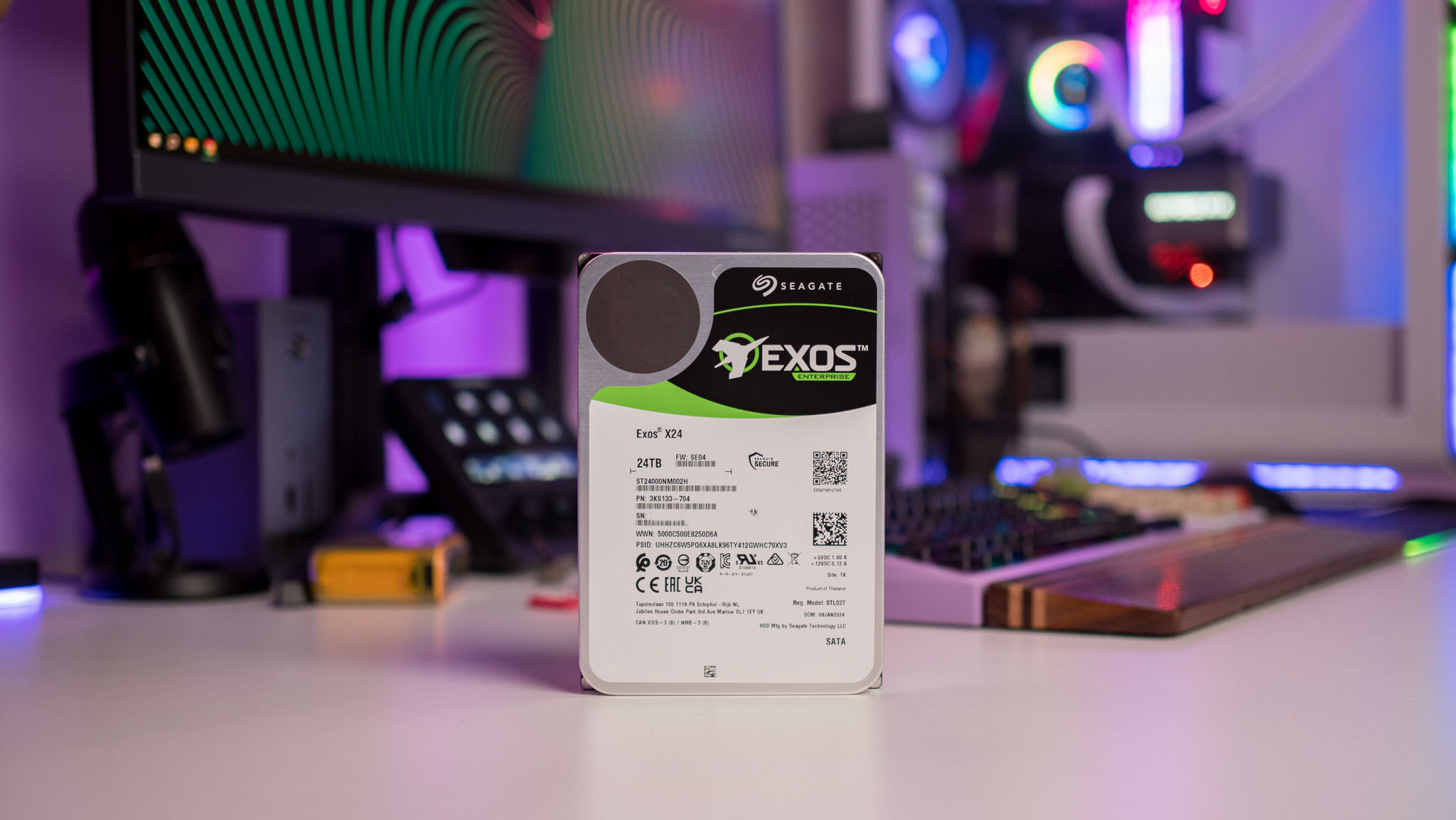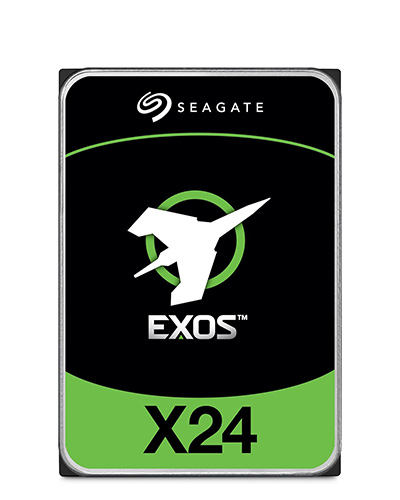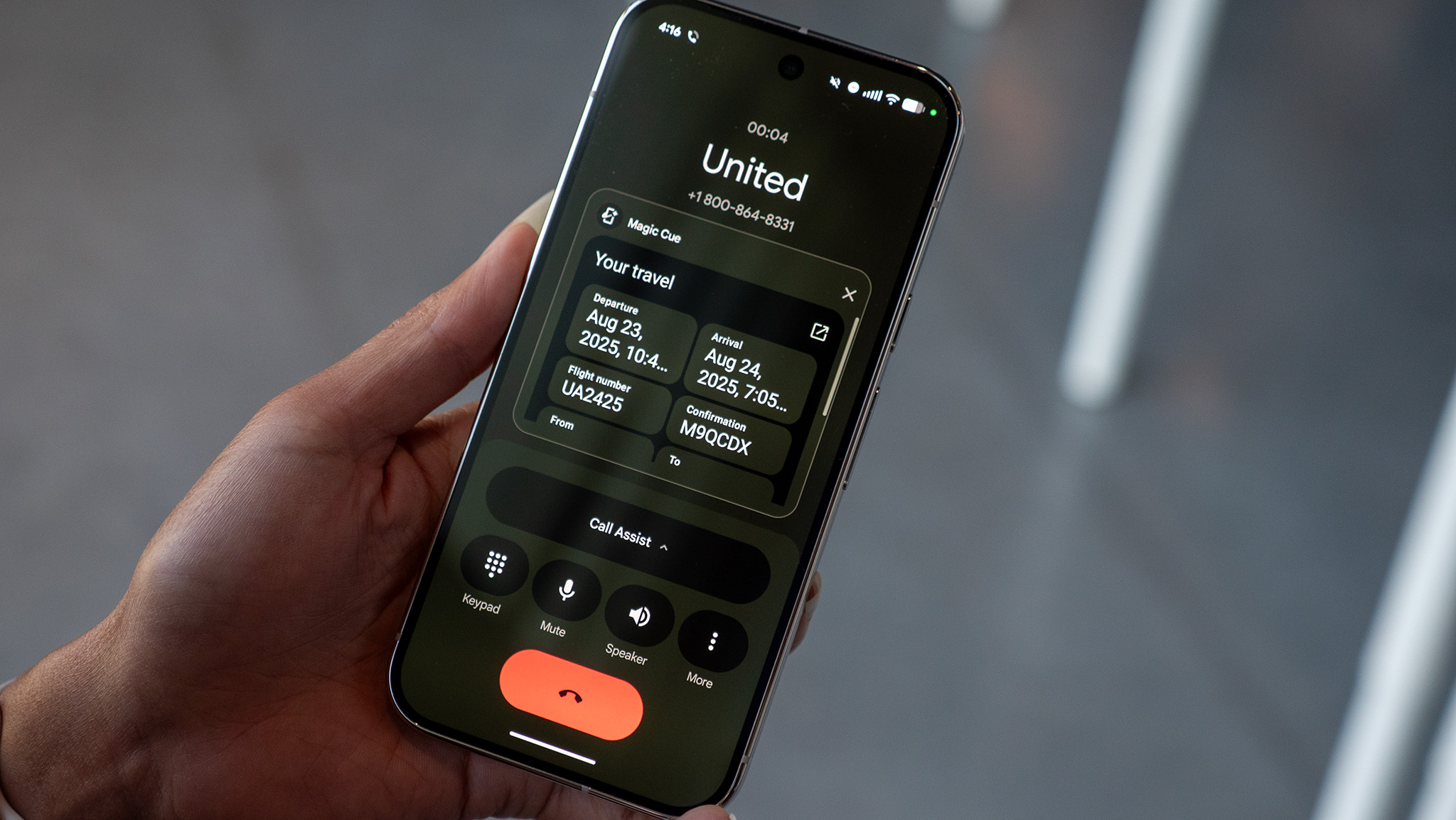Android Central Verdict
The 24TB version of the Exos X24 is a phenomenal choice if you need a mechanical HDD that can store a lot of data on a single drive. The 7200RPM drive has terrific performance in daily use, it doesn't get noticeably louder than rival IronWolf Pro drives, and you get extended warranty. If you've got a high-end NAS and need a lot of storage, the Exos X24 is the best HDD you can get at the moment.
Pros
- +
Outstanding performance
- +
Helium-filled design
- +
Long-term reliability
- +
Extended warranty as standard
Cons
- -
Slightly noisier under load
Why you can trust Android Central
While most of the exciting innovation in the storage industry is focused on SSDs, mechanical hard drives aren't left behind — far from it. Seagate in particular has consistently delivered HDDs with ever-increasing capacities, and the Exos X24 sits at the top of the summit. The drive debuted at the end of last year, and is the flagship offering in the Exos X24 series, which goes from 12TB to 24TB.
All the drives in the Exos X24 series are based on conventional magnetic recording (CMR) tech, and Seagate also has custom models that use shingled magnetic recording (SMR), with these going up to 28TB. But Seagate isn't selling those drives to retail customers, and is instead making them available to its enterprise clients.
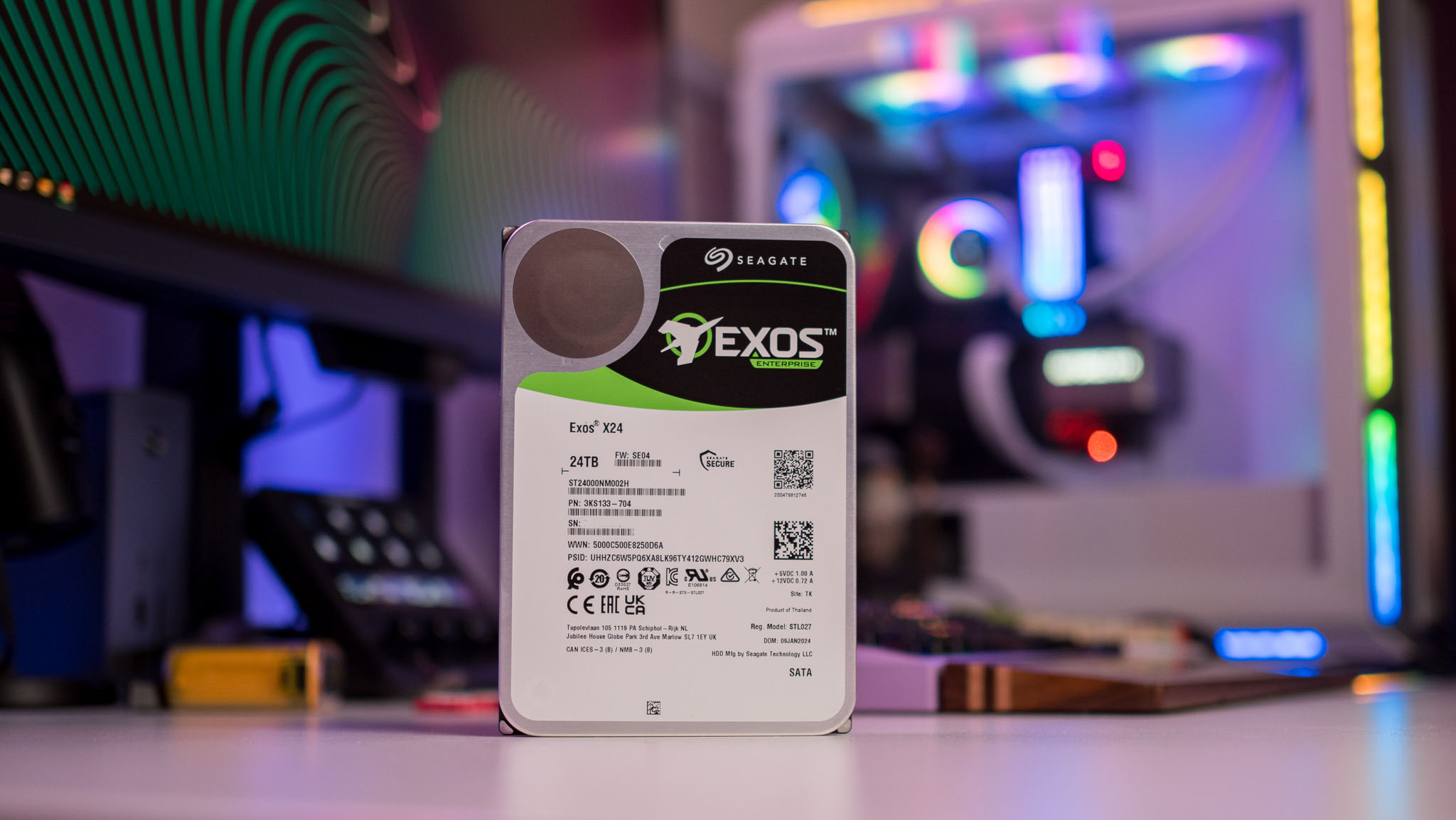
Coming to the consumer Exos series, the 12TB version of the Exos X24 starts off at $318, the 16TB drive retails for $360, the 20TB is $409, and the 24TB HDD that I'm reviewing (ST24000NM002H) is available for $479 on Amazon. I'm using the variant with the standard 6Gbps SATA interface, and Seagate also has a dual-port 12Gbps SAS option available.
Having used the 20TB Exos X20 extensively over the course of the last year, the main difference with the X24 is that it has a 512MB cache buffer (up from 256GB). The 24TB drive has 10 2.4TB platters, and only the heat-assisted magnetic recording (HAMR)-based Exos Mozaic 3+ has a better density in Seagate's portfolio, offering 3TB platters.
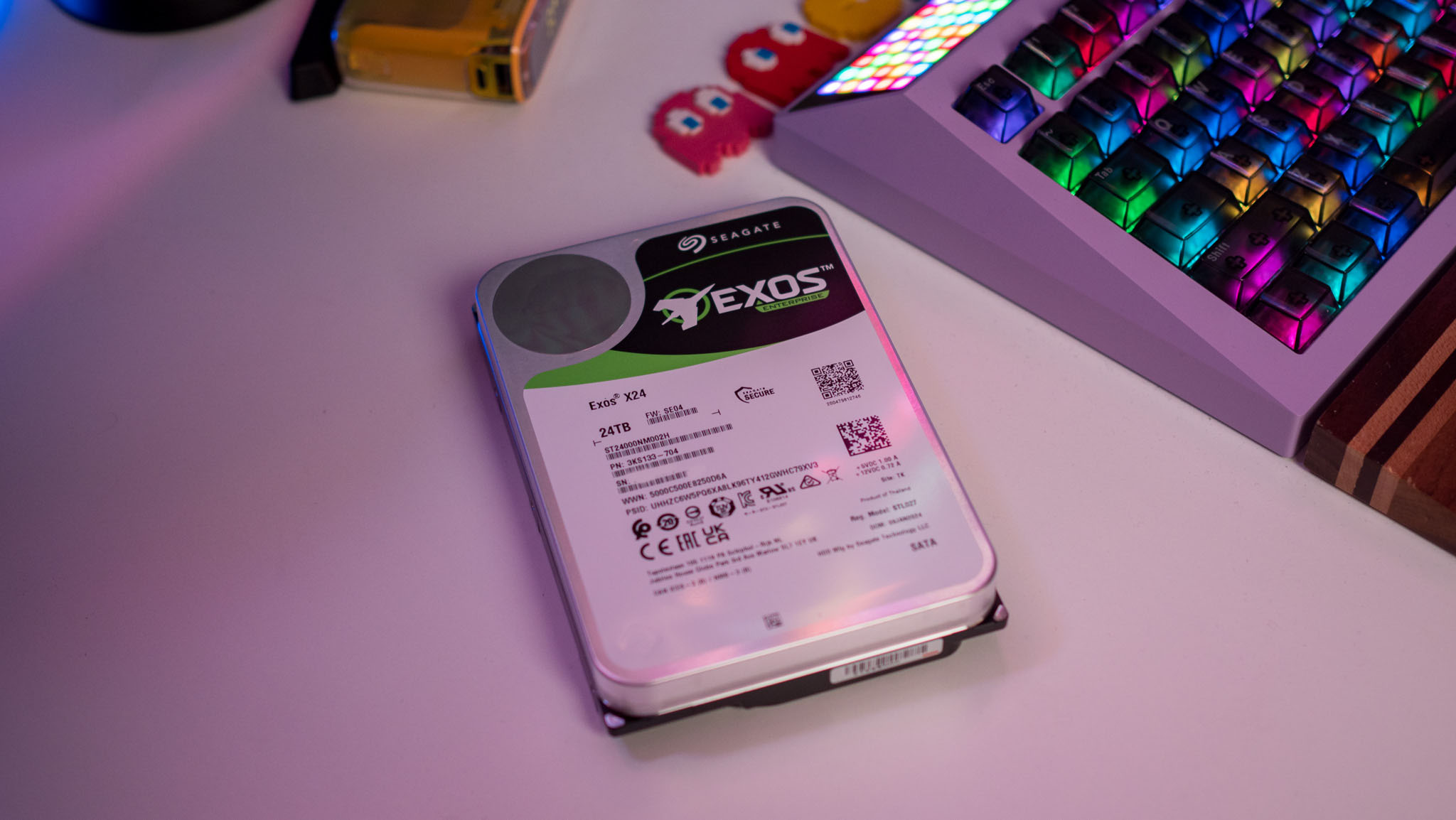
The rest of the numbers are in line with the X20 series; the 24TB Exos X24 spins at 7200RPM, has a 550TB/year workload rating, 2.5 million hour MTBF (mean time between failures), sustained transfers of 285MB/s, and 168/550 random read/write IOPS. And like other Exos models, the X24 comes with an extended warranty that covers any issues up to five years.
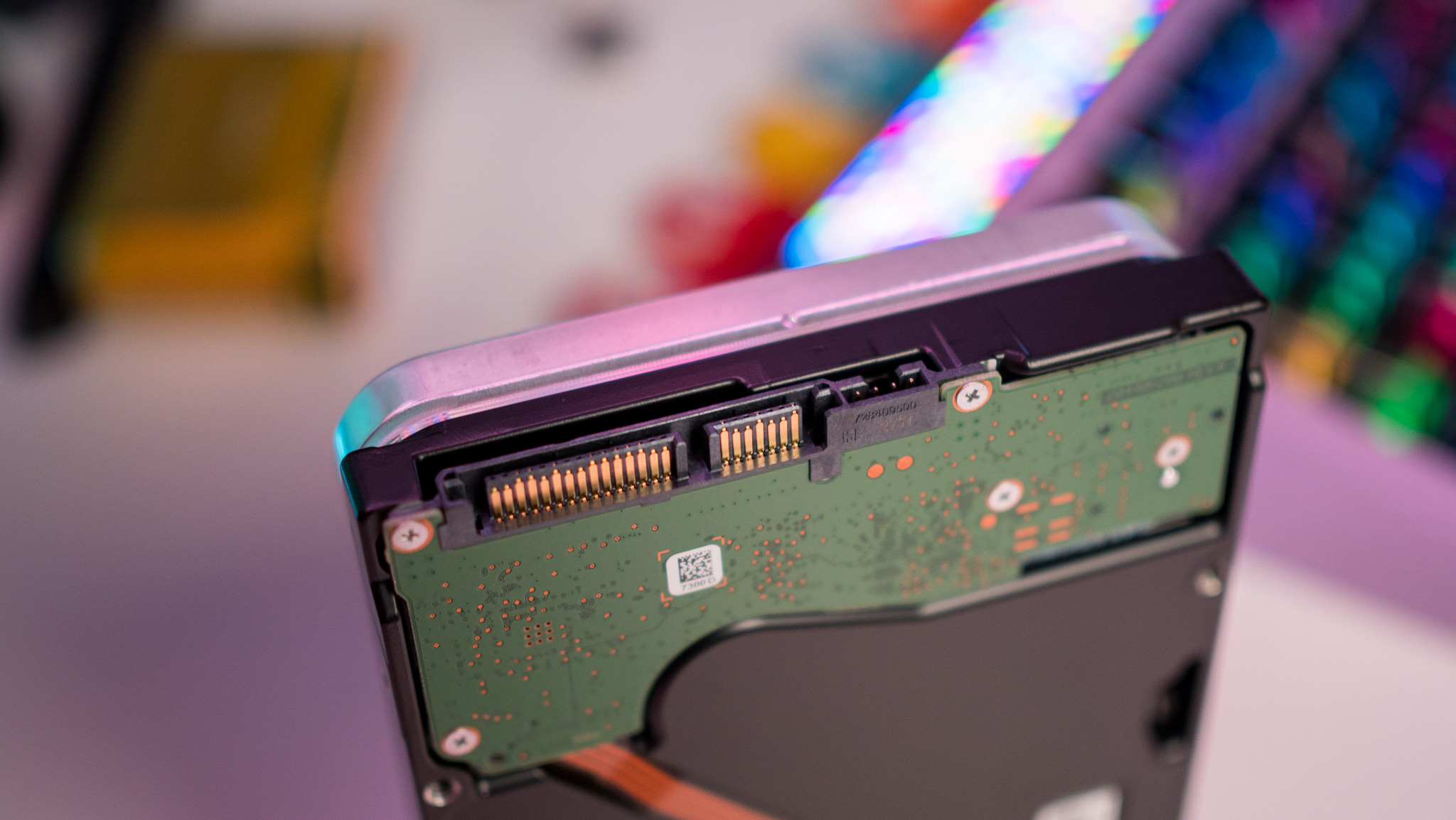
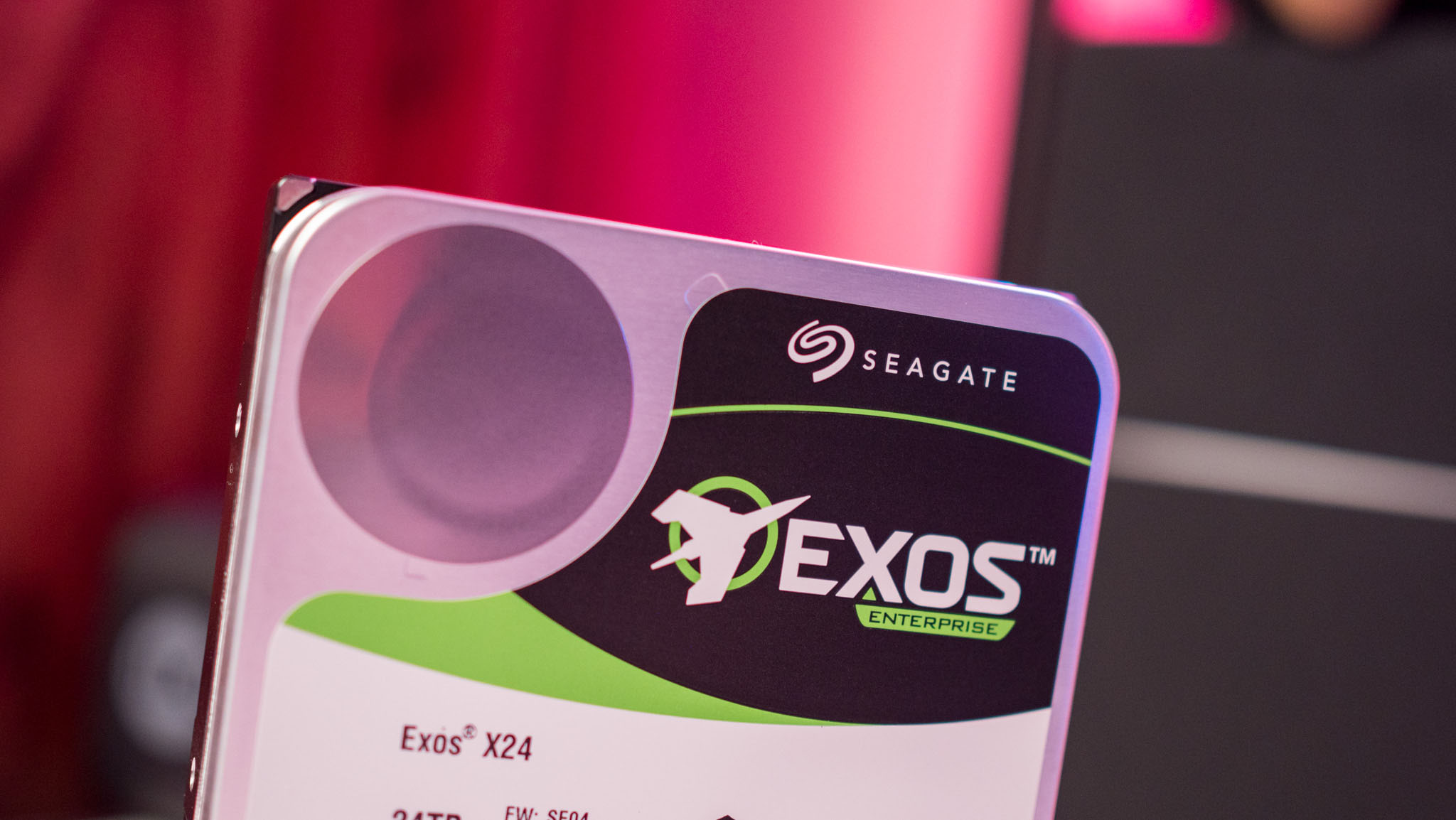
The Exos X24 drives are helium-filled, and this allows better density as the platters can be thinner; this is how Seagate was able to fit 10 platters into the Exos X24 — regular HDDs feature up to six platters. These drives generate less noise and heat, and they withstand vibrations a little better than traditional HDDs. That's why most high-density HDDs these days use a helium-sealed enclosure.
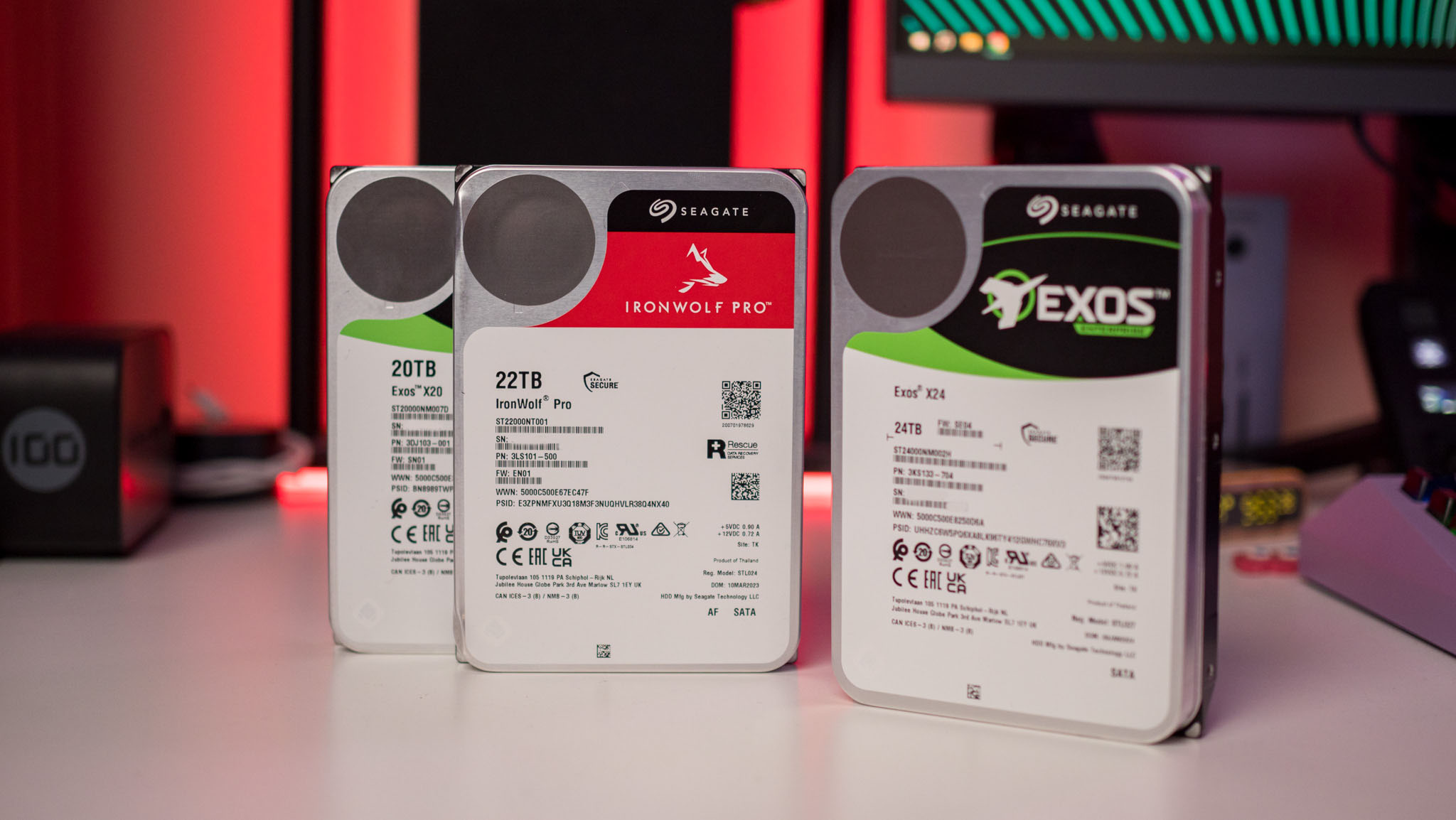
I used the Exos X24 24TB for just over two months now in the DiskStation DS1823xs+, and it has been terrific. The drive is technically designed for data center use, but if you're running an enthusiast server and need to store a lot of data, it is one of the best options right now. I ran the Exos X24 alongside the 20TB Exos X20 and a 22TB IronWolf Pro, and it runs a little cooler under load. I managed transfers of 254MB/s on average, and that is more than what the 20TB and 22TB drives delivered.
Get the latest news from Android Central, your trusted companion in the world of Android
Seagate also makes a 24TB version of the IronWolf Pro, and while these continue to be among the best NAS HDDs available, the Exos X24 is a better choice. It tends to be noisier during sustained reads and writes, but it isn't considerably more so than the IronWolf Pro, and in daily usage scenarios, the drive isn't audible.
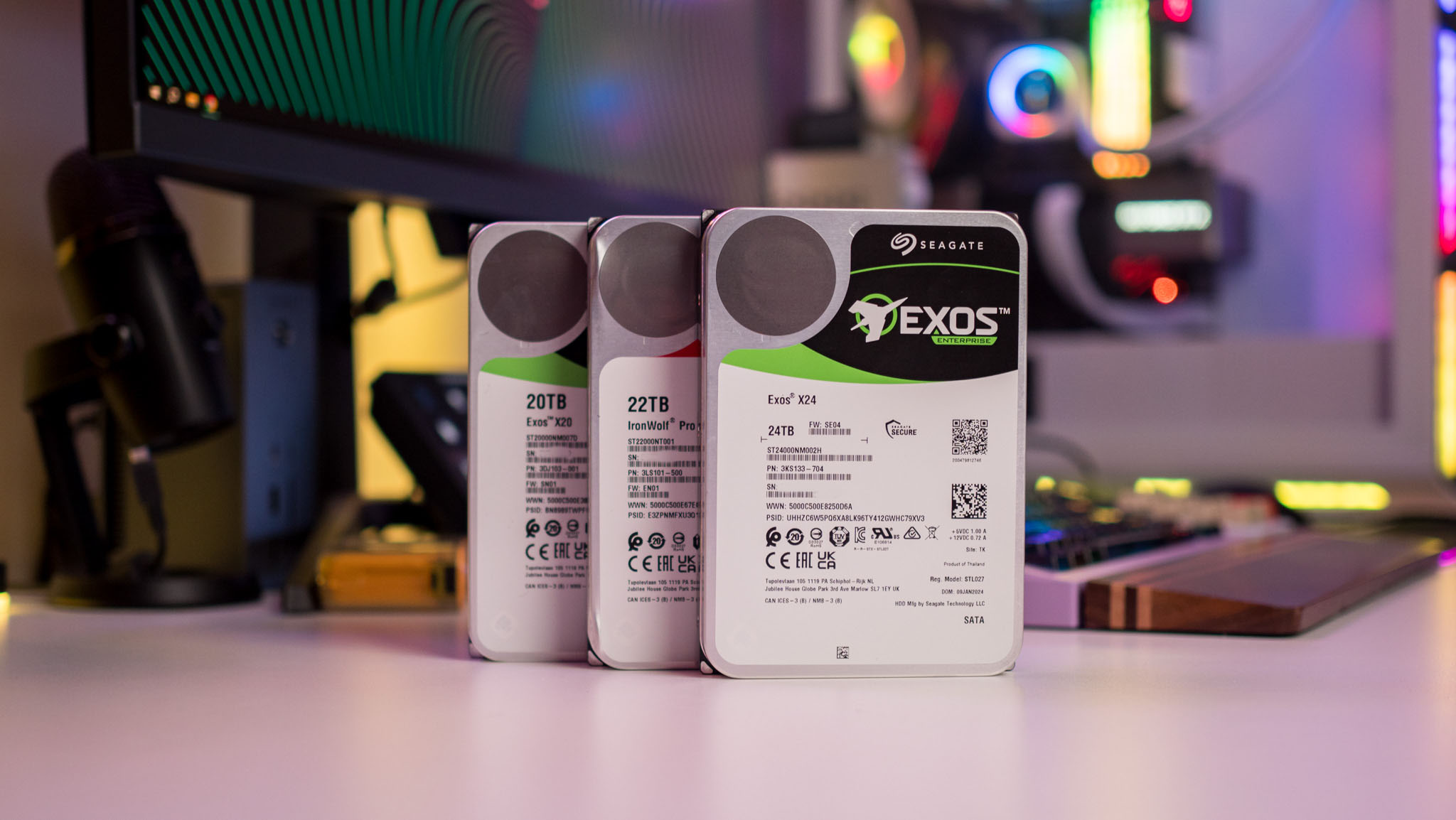
Coming in at $479 for the 24TB drive, the Exos X24 costs $19.95 per terabyte, and while this is higher than the $16.6/TB that the 18TB Exos X18 is retailing for as of writing, you are getting much better storage density.
Ultimately, the 24TB Exos X24 is your best option if you want an HDD with a large capacity and outstanding performance. With Seagate switching gears to HAMR tech and focusing on drives like the Mozaic 3+, the Exos X24 is the default choice if you want a CMR drive with high storage potential and proven reliability.

Harish Jonnalagadda is Android Central's Senior Editor overseeing mobile coverage. In his current role, he leads the site's coverage of Chinese phone brands, networking products, and AV gear. He has been testing phones for over a decade, and has extensive experience in mobile hardware and the global semiconductor industry. Contact him on Twitter at @chunkynerd.
You must confirm your public display name before commenting
Please logout and then login again, you will then be prompted to enter your display name.
